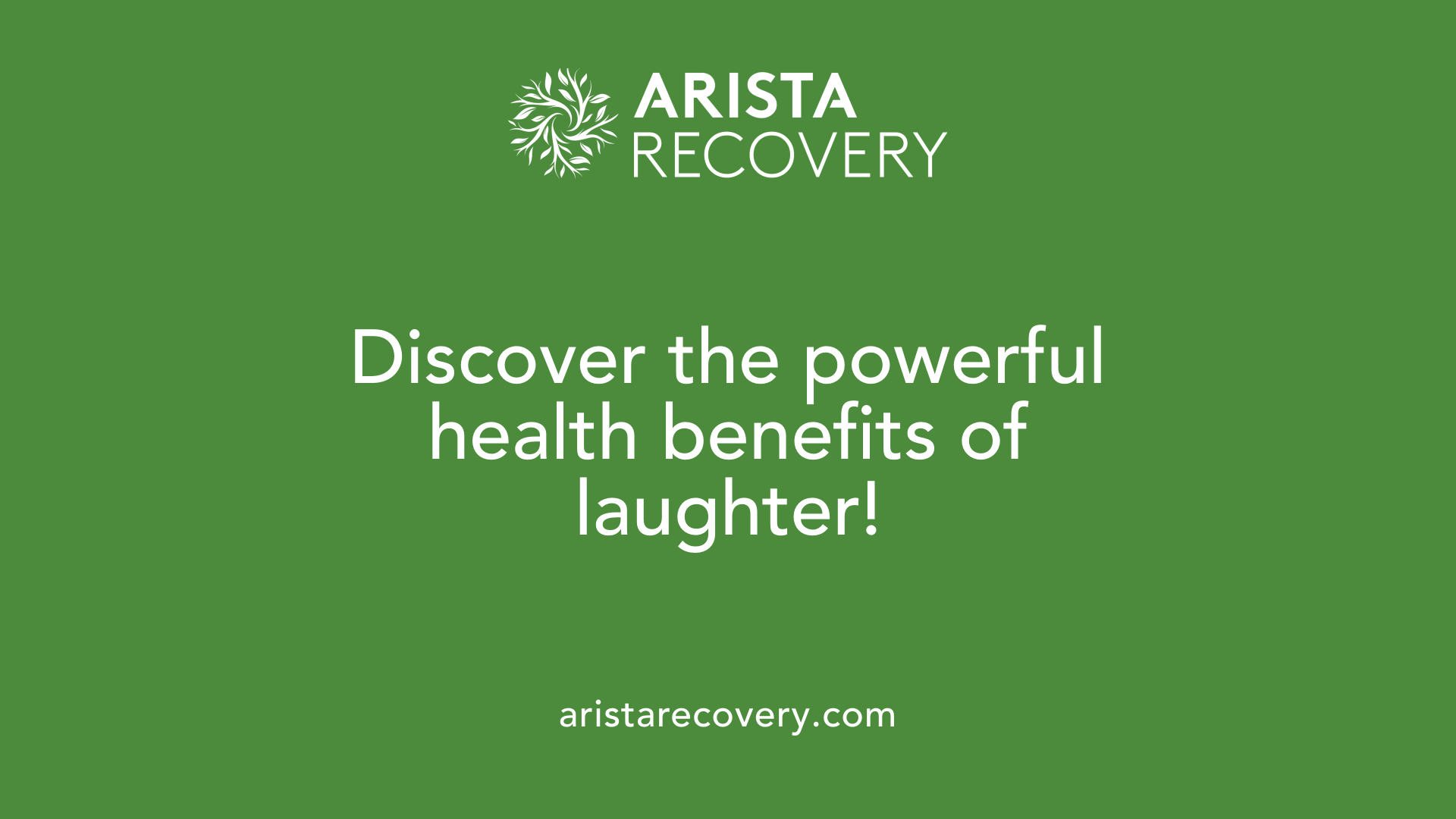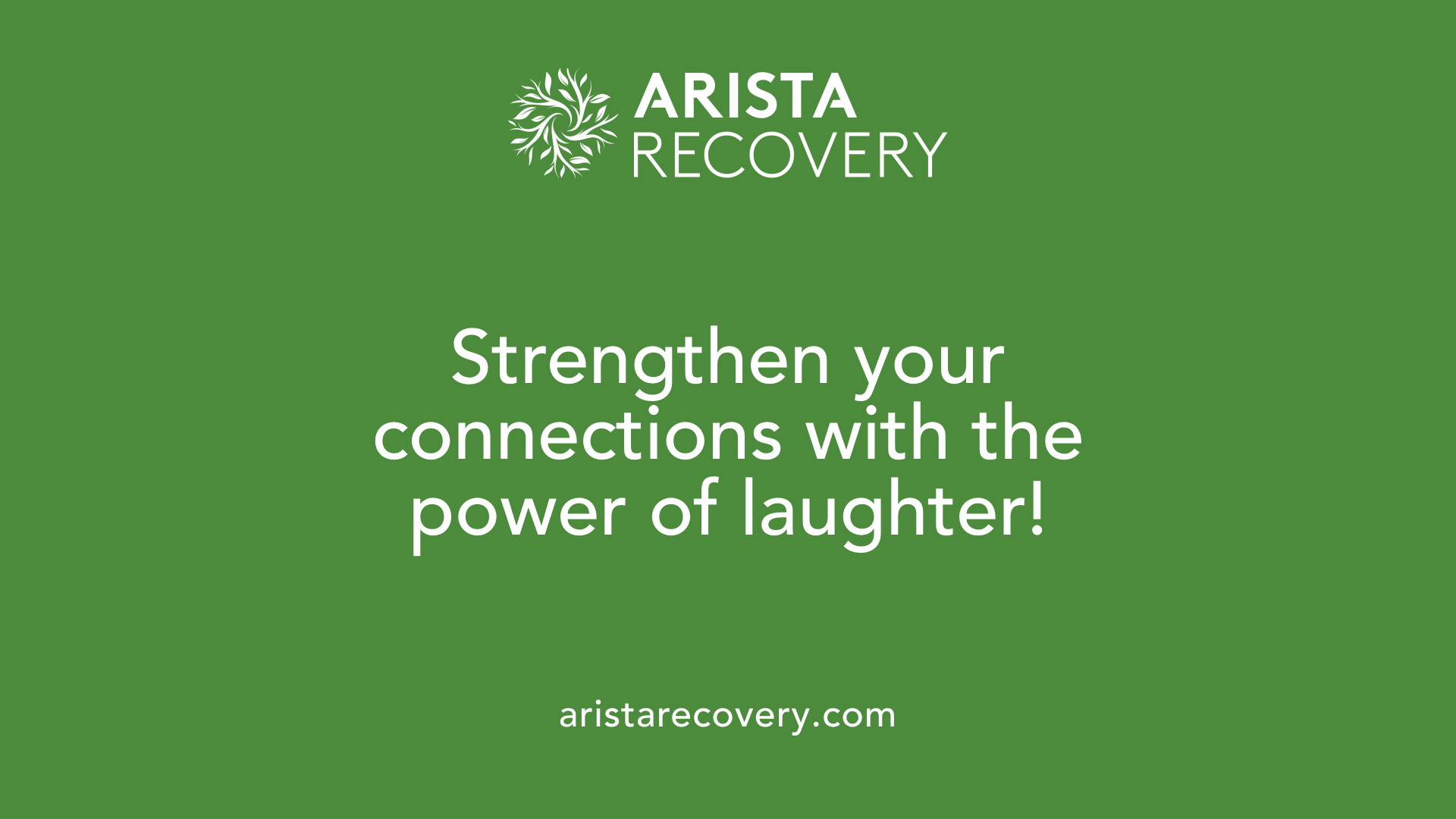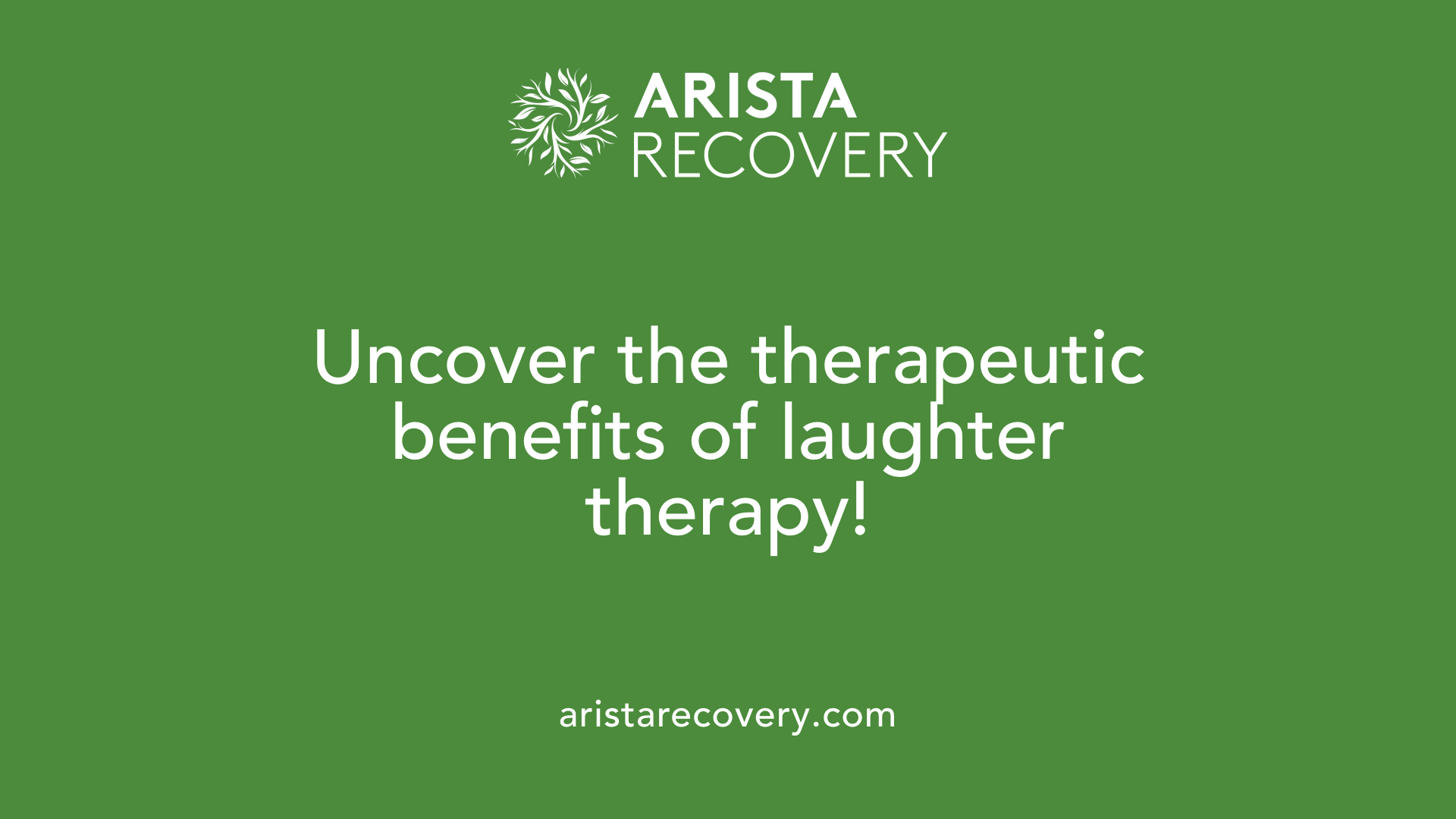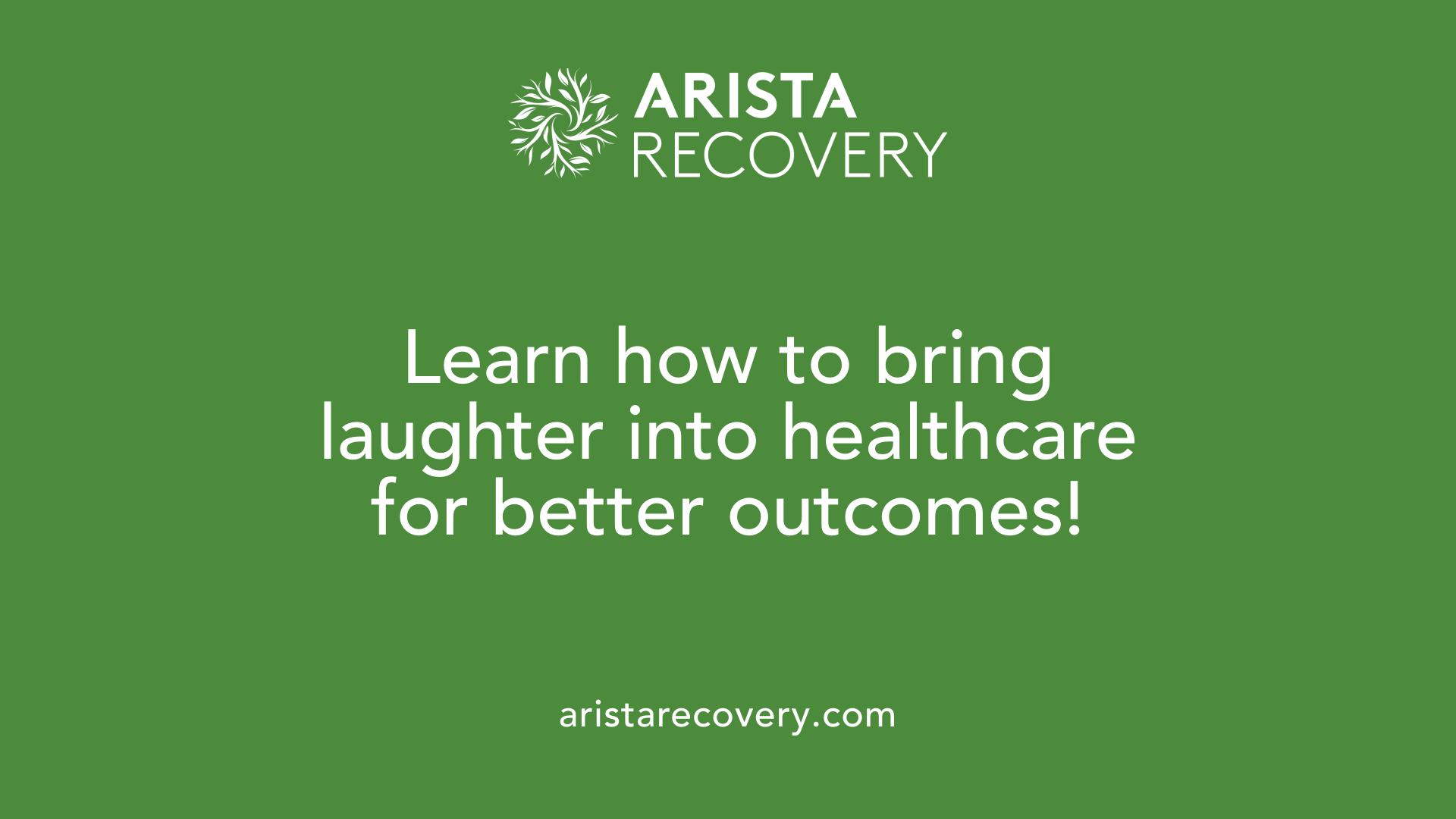
The role of humor and laughter in the healing process
Introduction
Humor and laughter have long been recognized for their uplifting effects, not just emotionally, but physically, in promoting well-being and healing. As scientists continue to explore their beneficial properties, it's evident that incorporating humor into daily life and healthcare can significantly impact mental and physical health. This article delves into the myriad ways laughter contributes to stress relief, healing, and overall health improvement, outlining research-supported insights and practical applications.
The Physiological Impact of Laughter

What are the effects and benefits of laughter on health?
Laughter has numerous positive effects on health, enhancing oxygen intake and stimulating vital organs like the heart, lungs, and muscles, promoting overall wellness. It activates the body’s stress response but then facilitates relaxation by lowering heart rate and blood pressure, helping to relieve stress. Moreover, laughter soothes tension and supports muscle relaxation, which aids in reducing physical symptoms of stress.
Laughter also has a significant role in boosting the immune system. Positive thoughts induced by laughter release neuropeptides that effectively combat stress. This not only enhances mood and reduces anxiety but also results in increased personal satisfaction, contributing to overall happiness and improved self-esteem. Studies suggest that engaging in laughter can even burn some calories, mimicking light physical activity.
Comparison of laughter benefits to physical exercise
While laughter is not a substitute for exercise, it shares some parallels with physical activity benefits. Both laughter and exercise lead to similar physiological responses, including elevated heart rate and improved circulation. Engaging in laughter for just 10 to 15 minutes can burn an additional 10 to 40 calories, illustrating its role as a form of light physical activity that enhances well-being.
Impact on stress and hormone levels
Laughter significantly lowers cortisol levels, the hormone linked to stress. By countering stress hormones, laughter promotes a sense of calm, alleviating anxiety. Additionally, it stimulates the release of endorphins, serotonin, and oxytocin, which are all vital for mood enhancement. This combination highlights laughter's powerful impact as a natural stress reducer, encouraging a healthier psychological state.
Laughter's Role in Social Well-Being

What are the social benefits of laughter?
Laughter provides numerous social benefits, primarily by enhancing relationships and fostering connections among individuals. It serves as a social emotion that promotes bonding, affection, and emotional regulation, making interactions more positive. The contagious nature of laughter encourages shared joy and acts as a social glue that helps to diffuse conflicts and improve communication.
When people laugh together, they experience a sense of unity, which strengthens social ties. This shared joy can lead to improved teamwork and collaboration, as individuals feel more connected and comfortable with each other. Additionally, laughter reduces stress and anxiety, making it easier for people to be open, spontaneous, and express their true feelings.
How does laughter strengthen relationships?
Engaging in laughter can significantly uplift mood and reinforce relationships. It enhances empathy and understanding among individuals, creating a trusting environment where they feel safe to share their thoughts and emotions. Laughter can break the ice in new relationships and help solidify bonds in existing ones by creating positive, memorable interactions.
Shared laughter can also lead to improved communication. The mirthful experience enables a more relaxed atmosphere where people are likely to communicate effectively and resolve conflicts harmoniously. Ultimately, incorporating laughter into daily interactions is a powerful tool for enhancing social connections and maintaining healthy relationships.
Humor in Healing and Stress Management

How does humor contribute to healing and stress relief?
Humor plays a significant role in healing and stress relief by offering numerous physiological and psychological benefits. Laughter not only decreases stress hormones but also boosts the immune system by increasing infection-fighting antibodies and immune cells. The act of laughing triggers the release of endorphins, the body’s natural feel-good chemicals, enhancing overall well-being and providing temporary pain relief.
Furthermore, laughter promotes heart health by improving blood vessel function and circulation, reducing the risk of heart disease. It has been observed that individuals who laugh often experience lower blood pressure and exhibit improved heart function. This reduction in physiological stress responses contributes to a calmer state of mind.
Additionally, laughter fosters resilience and a positive mindset, helping individuals cope with life’s challenges more effectively. Engaging in humor adds joy to life, eases anxiety, and contributes to improved mental health and longevity. These cumulative effects of laughter not only aid recovery from illness but also enhance overall quality of life.
Overview of Healing Benefits and Stress Relief from Laughter
BenefitPhysiological EffectsPsychological EffectsImmune BoostIncreases antibodies and immune cellsEnhances mood and feelings of happinessCardiovascular HealthImproves blood flow and vessel functionReduces anxiety and stress levelsPain ReliefReleases endorphinsPromotes relaxation and well-beingResilienceHelps cope with challengesFosters a positive outlookStress ReductionLowers cortisol and adrenalineAlleviates symptoms of depression
Laughter as a Coping Mechanism
In what ways does laughter serve as a coping mechanism during challenging times?
Laughter serves as a vital coping mechanism during challenging times by reframing stressful situations and providing individuals with a lighter perspective on their problems. This shift in outlook helps reduce tension and fosters positive emotions, contributing to lower stress levels and improved mental health outcomes.
Engaging in humor can relieve feelings of embarrassment and shame associated with difficult experiences, promoting emotional well-being and resilience. The act of laughing stimulates various physiological responses in the body. For instance, it triggers the release of endorphins—natural mood enhancers—which further aid in stress relief and contribute to overall physical health.
Moreover, laughter strengthens social bonds, making it easier to connect with others. Shared laughter can enhance feelings of belonging and support, essential elements in navigating adversity. By promoting joy, reducing anxiety, and fostering connections, laughter emerges as a powerful tool in coping and resilience, underscoring its importance during challenging life moments.
Incorporating Humor into Daily Life
How can humor be applied practically in daily life for better well-being?
Humor can be integrated into daily life through various enjoyable activities that boost mental and emotional health. Simple practices like sharing jokes, participating in laughter yoga, or engaging with comedic content can alleviate stress while enhancing overall mood.
Here are several practical applications of humor:
What are the mental health benefits of humor?
Incorporating humor fosters significant mental health benefits. Laughter triggers the release of endorphins and serotonin, leading to improved mood and well-being. It also helps reduce anxiety and stress levels by lowering cortisol, offering a sense of calm that contributes to oxidative stress reduction.
What role does humor play in relationships?
Shared laughter strengthens social bonds, promoting trust and a sense of belonging. It can break down barriers, facilitate deeper conversations, and create a supportive environment among friends, family, or colleagues. This bonding through humor enhances overall emotional resilience, making challenges easier to face.
Ultimately, integrating humor into daily life acts as a comprehensive tool for improving mental and emotional well-being—making experiences of joy and connection more accessible. It underscores the importance of laughter not just as a reaction but as a proactive choice for health.
Benefits of Laughter Therapy

What are the benefits of laughter therapy?
Laughter therapy, also known as humor therapy, provides a wide array of benefits, especially for individuals coping with serious illnesses like cancer. This unique form of therapy utilizes laughter to help alleviate pain and stress, enhancing overall mood and well-being.
Studies show that laughter therapy exercises, promising encounters with clowns, and engaging content such as comedic films can lead to significant improvements in individuals' mental and emotional health. For instance, participants in an 8-week humor therapy program experienced noticeable reductions in feelings of pain and loneliness, while also reporting increases in happiness and life satisfaction.
Nonpharmacological approaches to patient care
This nonpharmacological approach to patient care is particularly advantageous during the emotional and physical trials of illness. By incorporating laughter into treatment plans, healthcare providers can create an environment that fosters joy and resilience among patients. Such strategies promote not just symptom relief but a more profound healing experience.
Impact on chronic illness and recovery
Moreover, laughter therapy has been found to aid in managing chronic illnesses. It enhances immune function, reduces stress hormones like cortisol, and improves sleep quality, all pivotal for better recovery outcomes. Overall, laughter therapy is a powerful tool in improving the quality of life for patients, helping them navigate their health challenges with a more positive outlook.
The Science Behind Laughter's Healing Power
Gelotology and Research Findings
Gelotology is the scientific study of laughter and humor, revealing its significant impact on physical and mental health. Studies indicate that laughter can trigger the release of endorphins, dopamine, and oxytocin, which enhance mood and promote relaxation. In particular, laughter has been shown to lower cortisol levels, the body's stress hormone, reducing anxiety and improving overall well-being. Regular laughter not only boosts immune function by increasing antibodies and immune cells, but it also enhances cardiovascular health by improving blood flow and vessel function.
Role of Laughter in Medical Settings
Laughter finds its place in various therapeutic contexts, from laughter yoga practices that combine physical activity with humor to laughter therapy used in patient care. Research demonstrates that individuals exposed to humor in healthcare environments, such as hospital clowns, report lower stress and anxiety levels. Incorporating laughter into treatment plans can facilitate emotional healing, boost self-esteem, and foster social connections among patients, which are all vital aspects of recovery and rehabilitation.
Laughter's Influence on Longevity and Aging
Connection between humor, longevity, and healthy aging
Laughter plays a crucial role in promoting a positive outlook, which is linked to longevity. Engaging in humor not only enhances the joy in daily life but also contributes to overall well-being. People who find humor in their experiences tend to cope better with stress and challenges, enabling them to enjoy healthier and longer lives.
Cross-sectional studies on age and laughter
Research suggests that laughter declines with age, as children laugh around 400 times a day compared to adults who laugh about 15 times. This decline is linked to functional disabilities in aging. Maintaining a sense of humor and encouraging laughter can foster emotional resilience and improve health outcomes as people age, potentially lowering risks of serious health issues.
Promoting Laughter in Healthcare Environments

Strategies to Incorporate Humor in Healthcare
Incorporating humor into healthcare settings can significantly enhance patient well-being and staff morale. Here are some effective strategies:
Case Studies of Humor Improving Patient Outcomes
Evidence supporting the benefits of humor in healthcare is growing. For instance, hospital clowning programs have demonstrated significant improvements in pediatric patients' anxiety levels during procedures. Similarly, ElderClowns have been effective in enhancing joy and reducing feelings of isolation among nursing home residents.
Another study highlighted by Norman Cousins evidenced the therapeutic effects of laughter, showing that his consistent viewing of comedic films significantly improved his health and pain management. These findings position laughter not only as a source of joy but also as a vital element in patient care, fostering recovery and enhancing quality of life.
Conclusion
Incorporating humor and laughter into health practices and daily routines offers a multitude of benefits ranging from stress reduction to improved social connections. Laughter has the power to enhance both psychological and physical health by easing pain, building resilience, and fostering community. As research continues to uncover the profound effects of laughter, its role in healing remains more relevant than ever, demonstrating that sometimes, the best medicine is indeed laughter itself.
References
- The Healing Benefits of Humor and Laughter - Whole Health Library
- Stress relief from laughter? It's no joke - Mayo Clinic
- The Healing Power of Laughter - PMC
- [PDF] Healing Benefits of Humor and Laughter | VA.gov
- Laughter is the Best Medicine - HelpGuide.org
- The Role of Humor and Laughter in Mental Health Recovery
- The healing power of laughter - David R Hamilton PHD
- A laugh a day keeps the doctor away? - Harvard Gazette
- The Healing Power of Humor - Toastmasters International
- Healing Through Humor - Topic Overview
When mental health challenges and addiction intersect, it can feel isolating. At Arista, we offer compassionate, evidence-based, and trauma-informed care to help you heal, grow, and move forward.
You’re not alone in this.
When mental health challenges and addiction intersect, it can feel isolating. At Arista, we offer compassionate, evidence-based, and trauma-informed care to help you heal, grow, and move forward.
Support that moves with you.
You’ve taken a brave first step. At Arista Recovery, we’re here to help you continue with best-in-class care designed for long-term healing and support.
.webp)






